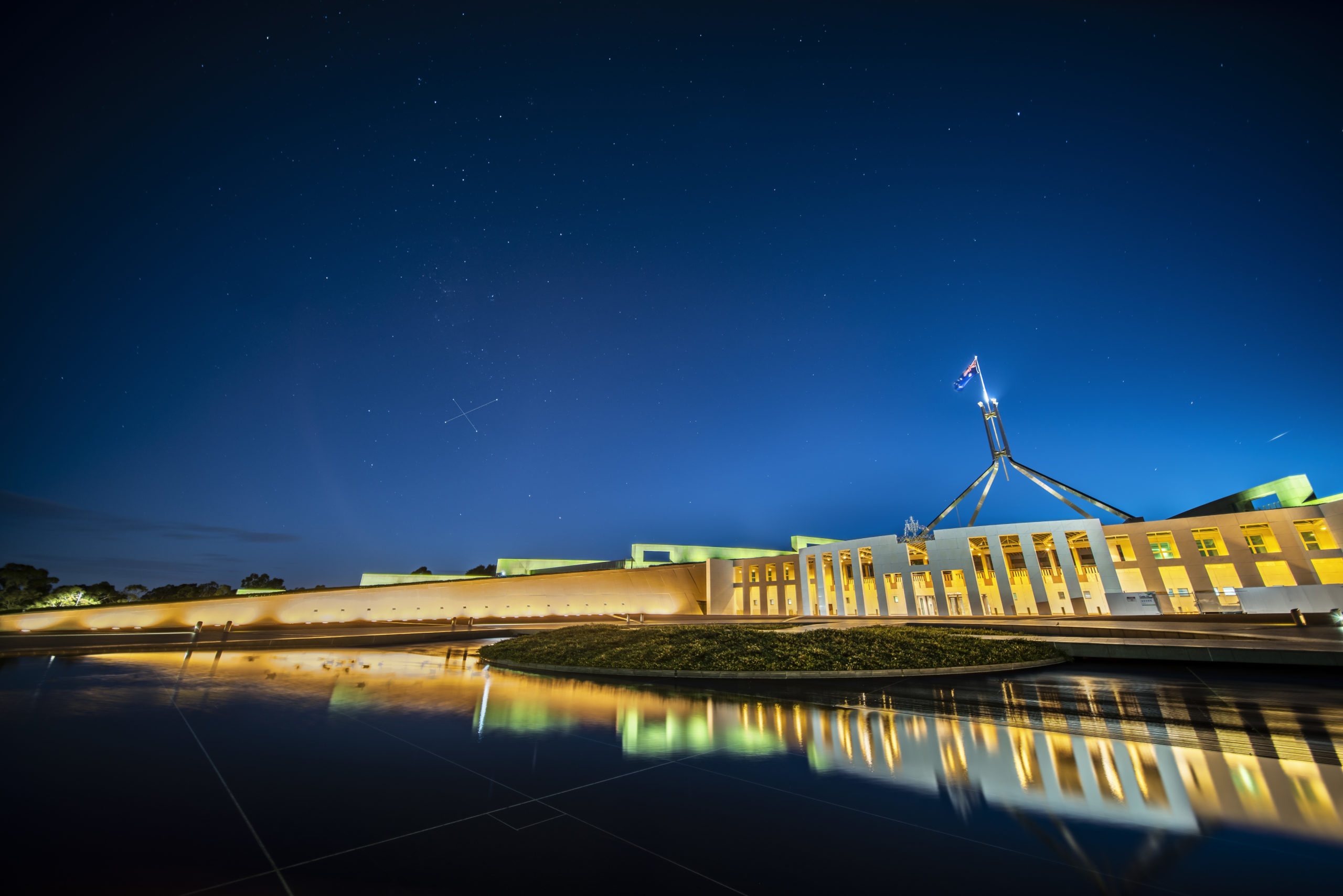Nearly all the good news in this week’s budget was announced ahead of Treasurer Josh Frydenberg detailing the government’s plans for the year ahead. Nonetheless, we asked many in the startup and tech sector what they thought of the 2021 budget. Here are their reactions:
Rebecca Schot-Guppy
CEO, FinTech Australia

Rebecca Schot-Guppy, CEO of Fintech Australia was photographed in Melbourne by Elke Meitzel
There weren’t too many surprises for the technology sector in the budget. STEM scholarships for women and changes to talent VISAs are pleasant additions to existing suite of policies. We also welcome the government’s review into tax incentives for the VC industry, and look forward to working closely with them on this.
It’s also commendable that the Morrison government is following the UK’s lead in creating a patent box incentive program to keep IP in Australia. We would like to see this program rolled out to other sections of the technology industry sooner rather than later, as it encourages innovation and rewards success.
However, the most poignant reforms were announced last week in the Government’s $1.2 billion technology package.
It may have been optimistic given the timing, however this was an great opportunity to immediately implement more of the recommendations suggested in Senator Bragg’s Senate Inquiry report.
For example, this budget could include the addition of a pool of funds within the Research and Development Tax Incentive for software-based innovation. Given the other tax breaks on offer for other industries, further schemes that favour startups and emerging companies shouldn’t be off the table.
Grant Custance
CEO and founder, nimbus
It’s good to see a renewed focus in the Budget on the role technology can play to grow our prosperity.
If Australia is to take advantage of the seismic shift occurring around the world due to COVID-19, including the accepted acceleration of digital economics, we need urgently to come up with a national, coordinated, long term strategic plan for supporting tech based innovation as they do in economies like Israel, where the government partners with businesses and even helps them go global.
This Budget has elements which we welcome, in that regard. But overall, it still lacks a significant, cohesive strategic approach. For example, if you look at the Patent Box, that’s actually only applicable for profitable businesses in the medical or biotech spheres.
Firstly, the very nature of start-ups and patents means that it’s more of the case than not that they need support before they are profitable. And secondly, limiting the application of the tax break for patents to two sectors is shortsighted.
Patent-based innovation, including those based on artificial intelligence and machine learning, are going to be at the heart of nations’ economic differentiation for decades to come.
We need to do more here. It’s a good start, but it’s only a start.
Dionne Niven
Chief People Officer, SiteMinder

Dionne Niven, Chief People Officer at SiteMinder.
Removing the taxation on a departure event is absolutely welcomed, and is an example of the types of legacy tax initiatives which did not make logical sense for the businesses and talent involved, as employees had to pay tax without meaningful benefits. However, the change is not applicable across the board.
SiteMinder has introduced a Shadow Equity Plan (SEP)—a cash bonus plan—as a response to the current employee stock ownership plan (ESOP) restrictions which prevent us from issuing equity to our people.
The current restriction of 20 people per year is simply not enough for a high growth business like ours. This reflects the government’s ongoing oversight when it considers the tech industry, with big tech and emerging startups often featuring in the budget, with little to no genuine consideration of locally-grown, established and fast-growing tech enterprises that have proven success on the global innovation stage.
Similarly, with the new budget, an unlisted company will be able to issue each employee up to $30,000 in shares a year, which is a significant increase from the $5,000 it was previously, but is still not near enough to what’s needed for local employers to attract and keep top talent.
The budget introduces some steps in the right direction and demonstrates a recognition that we are far behind international innovation hubs where the benefits of substantial government support for the tech sector significantly pay off. However, we still have a long way to go and it will be important for the government to step up and step into the tech sector even more this year to keep local talent onshore and empower local tech innovators to thrive.
As an Australian-headquartered, global technology company with over 700 employees around the world, SiteMinder relies heavily on the quality of its tech talent to keep the business servicing our approximately 34,000 customers while we continue to push the envelope on innovating and improving our offerings.
If the government continues to leave tech companies to deal with the talent shortage themselves, Australia will undoubtedly be left behind in the global race to innovate.
Nick Therkelsen-Terry
Co-founder and CEO, Max Kelsen
We welcome the announcement of additional funds for the AI industry in the Federal Budget. It’s a start, but that’s all it is. To take advantage of the post COVID-19, science and data led economic revolution, Australia urgently needs a more comprehensive, national policy level to grow Australia’s AI industry and supercharge it as a potentially significant export industry.
We are in a global race for leadership in technology and we just don’t have the skills at scale to be truly competitive in the age of software and AI based economic growth.
For example, the industry needs more changes to tax concessions and other incentives for research and development in the Federal Budget and the Digital Economy Strategy – and particularly, how governments approach software commercialisation and emphasise support for the “D” in R&D.
The announcement in the Budget of the Patent Box innovation incentive could and should be more comprehensive and applied beyond medical and biotech – and it does not assist pre-revenue and pre-profit companies. This Budget also doesn’t fully address the chronic challenge of how we are going to get world class AI and ML skills to Australia. It’s great to see investment in growing some of those skills here, and we at Max Kelsen already employ dozens of clever Australians. But we, and the wider industry, desperately need some way to ensure we can continue to import talent through net migration, provided they are either vaccinated or otherwise healthy.
The other potentially significant area of applied technology where Australia should be leading is Quantum Computing. Australia has been a global leader and innovator in the difficult research and development of this game changing technology for the past two decades, and most experts believe it will be commercialised in the next decade.
We need to be part of this commercialisation. But we heard nothing about it in the Budget. So overall, we welcome the focus on technology in the Federal Budget, but this is just the start. We need a coordinated, long term, national strategy, involving Federal, and State governments, businesses, start-ups and universities.
Mike Pritchett
Founder and CEO, Shootsta

Mike Pritchett, CEO of Shootsta
The budget goes further that any prior in terms of addressing and acknowledging Australia’s startup sector. Measures to streamline overseas talent visas and improve the employee share scheme system are steps forward for the ecosystem. As are further measures to bolster STEM and retrain Australians for work in technology.
The new patent box reform is a brilliant initiative that should be extended beyond biotech and medtech and opened up to all patentable innovation.
But, it makes you consider our priorities when you are offering direct tax breaks to brewers, but not to our emerging technology companies.
There’s still some fundamentals missing, namely a simplification of the existing systems tied to grants, R&D tax incentives and government loans.
There’s a jungle of red tape here that continues to be ignored, despite the government’s overall enthusiasm to chop it for all businesses. Bureaucracy with these programs needs to be cut to both retain existing growth companies in Australia and better support emerging startups, who don’t have the resources to employ anyone to navigate it.
Des Hang
Co-founder and CEO, Carbar

Carbar’s Des Hang
Overall, you can’t help but agree with the philosophy of this budget. It’s bridging inequality in society, helping empower Australians to find work in a post COVID-world and even makes a point of saying that our technology sector will be the next driver of growth.
While there’s a lot of merit in the initiatives aimed at helping startups attract global talent, which include the introduction of global talent VISAs and simplification employee share schemes.
We also question why the government’s patent box policy to provide a tax break to original Australian patents can’t be rolled out more broadly to technology companies, instead of just biotech and medtech initially with scope to rollout to clean tech. Next to improvement to the research and development tax incentive, surely is the kind of boost for innovation Australia has been looking for.
It’s also disappointing that reforms regarding EVs have been excluded from this budget and have perhaps become a political football. EVs are a key part of our commitment towards becoming a carbon neutral country, it makes sense for the federal government to be leading the charge here, but this budget puts the responsibility for their funding and incentivising their rollout firmly on the various state governments.
Sam Pratt
CEO, Render

Render CEO Sam Pratt
This budget took the opportunity to close some crucial gaps in society, and that is commendable. However as we make our way out the other side of the pandemic, it appears to be a missed opportunity to put forward a vision for the future of the economy by investing meaningfully and improving the competitiveness and relevance of tech ecosystem. Will this budget moderate the rate at which this next generation of rapidly scaling, Australian founded companies from migrating focus and investment in people offshore as they continue to grow? Unfortunately the simple answer is no.
There is plenty to like however about the initiatives announced. Changes to VISAs are a step in the right direction to attracting talent and building world-class teams. As is the flagged review into tax incentives for VCs. But Australia’s technological prowess is our ticket to the next technology boom that is already in-flight. We all know this, and yet flagship reform in this regard only makes up a small portion of the overall budget. Where is the $10 billion package aimed at transitioning us away from commodities and establishing technology as the primary Australian export?
NBN Co also escaped a mention of this budget. This is perhaps because no news is good news. NBN Co CEO Stephen Rue announced last week that it is on track to connect up to 75% of premises with 1gbps capable fibre connections by 2023, which is a meaningful step in the right direction. This infrastructure is the backbone of our digital future and therefore can’t arrive soon enough. Both the US and the UK have recently announced massive new fibre infrastructure investments in response to the pandemic; hopefully NBN Co’s $4.5b network investment program is sufficient to keep pace.
Tim Dickinson
CEO, Assembly Payments

Tim Dickinson, GM of Platform at Assembly Payments.
This budget focuses on reforms that we need to get right ahead of opening Australia to the rest of the world. We may well be entering a stage of covid-normal and we should position ourselves for growth in this environment, being able to pull in talent thanks to tweaks to employee share schemes and the new global talent VISA program is a great step in that direction.
The new patent box reform is particularly interesting. It’s fair enough that the government wants to strongly incentivise all medical and biotech innovation staying in Australia during a global pandemic. But it needs to think outside of the box, and broaden this policy.
Many other sectors, including fintech, could greatly benefit from this measured tax break. If the past 18 months have shown us anything, it’s how small the world truly is. Continued interactions through digital-first innovation will be key to our shared future, no matter how challenging.
We’re lucky to have weathered the COVID-19 pandemic in the manner that we have. But, it continues to ravage other larger economics. This should be a wake-up call. We’re still in the firing line of that economic ripple effect, and we need to prepare for it.
Robert Read
CEO, MedAdvisor

MedAdvisor CEO Robert Read.
Improving access to healthcare and medication, no matter where you live in Australia, is a theme which underpins the healthcare initiatives in this budget and something MedAdvisor applauds.
Specific investment in technology, including MyGov and My Health Record initiatives are aimed at improving the digital delivery of government services and is something that will drive medication adherence and improve healthcare outcomes.
The additional home care packages are key for older Australians to age well in their home. Medication management is critical to help people stay in their home safely and MedAdvisor can assist with this challenge. We are also lucky as a country that we don’t have the challenges present globally with COVID.
Gautam Saghal
CEO, Perkbox
Globally, Australia is in an enviable position, recovering from a COVID-recession well ahead of its peers. It presents an opportunity to invest and carve out a vision for a tech-led future for the country. There’s plenty of tweaks in the right direction, but the overall vision is missing.
We’re heading in the right direction. Introducing a patent box policy — which is used across several European countries — is smart. But will raise questions as to why its initial scope is so limited when the policy’s effectiveness has been tried and tested in other regions.
Vijay Sundaram
Chief Strategy Officer, Zoho

Vijay Sundaram, chief startegy officer, Zoho
While technology is, indeed, essential, we must not lose sight of the fact that some people will be displaced by it. It’s imperative that we provide everyone with access to training and upskilling so they can continue to find meaningful, fulfilling and important work.
Additional funding for digital skills training is a pragmatic policy that demonstrates that the Government is serious about technology, but to supplement rather than supplant workers.
The education and training system is most effective when it’s flexible and is built with an eye on the business environment in which it’s preparing students for. Degrees are still vital, but are no longer the be all and end all.
That’s why the Digital Cadetship Program should be celebrated.
Through it we’re giving the next generation of our workforce the hands-on experience and expertise in the industries and skills that will define innovation and drive opportunity for decades to come. Just as TAFE programs have helped Australia build some of the most envious industries in the world for vocational subjects, the Digital Cadetship Program could be the first step in doing the same in the technology industries.
Australia’s long term economic prosperity is dependent on competition, and a business environment that encourages participation and removes barriers to innovation and investment.
Tax incentives to attract global talent and businesses to Australia could significantly diversify an already dynamic, contemporary and resilient Australian economy.
By providing foreign investors with quick tax advice for local transactions or relocations, as well as reviewing the current incentives for venture capitalists with regards Australian startups, the Government is signalling loud and clear that Australia is open for business.
Carol Chris

Carol Chris, Regional GM, GBG
We cannot overlook the threat of cyber financial fraud
This year, the government has dedicated $1.2 billion to their digital strategy, including $50 million to improve cybersecurity in the government. While both digital and cybersecurity investments are critical to keeping Australia safe and technologically competitive against our global counterparts, these investments require holistic, strategic, and measurable approaches to be effective.
For example, how cyber financial fraud is going to be managed has not been addressed in the federal budget, despite the fact that this has been a rapidly growing threat for Australians and Australian businesses, accelerated by the pandemic. Data mining through cyber attacks and leveraging advanced technology to create spoofs, synthetic IDs, and deepfakes are just some of the many ways sophisticated crime syndicates around the world are taking advantage of Australians’ growing use of digital channels, including consumers’ increasing levels of comfort with managing their finances online.
AI needs to be embedded in our approach to businesses’ digital readiness
The budget’s commitment of $53.8 million over four years to establish the National Artificial Intelligence Centre to drive AI adoption is a promising first step towards empowering Australian businesses with this evolving and valuable technology. The impact of this investment and growing availability of the technology will be measured by how well AI initiatives are embedded into industries in ways that build overall digital readiness.
For example, the financial services industry, like many others, experienced accelerated digital transformation in 2020, and is now focusing on how to build and sustain digital trust with customers. AI holds the keys to outpace fraudsters’ use of innovative methods to commit financial crimes and further accelerate financial institutions’ digital capabilities and operational efficiencies, however the industry won’t experience the true extent of these potential benefits if the AI policies in place are actioned in siloes away from the financial executives delivering everyday services to Australians.
Neil Pollock
CEO, FirstWave Cloud Technology

Neil Pollock, CEO, FirstWave Cloud Technology
Cyber spend without cyber standards will go nowhere. We’ve seen throughout the pandemic that a significant rise in cyber threats unfortunately does not lead to a significant rise in cyber resilience and prevention investments, particularly among small businesses.
Our small businesses, which make up the lion’s share of jobs across the country, have never been more susceptible to a growing volume and range of cybersecurity attacks, from phishing to ransomware. However, it continues to be common practice for SMB owners to put cybersecurity in the ‘too hard basket’, hoping it will sort itself out.
The government’s $50 million investment into cybersecurity cannot overlook this very real threat to our SMBs. We need to invest in designing, implementing, and upholding a cybersecurity standard, as they have done in countries like the UK, that empowers SMBs to address the fundamentals of cybersecurity and to keep cybercriminals at bay.
Without some basic standards and best practices in place, what may seem like a lot of money to some, will simply become $50 million wasted.
Ian Yip
CEO, Avertro

Ian Yip, co-founder and CEO of Avertro
The government continues to prove that the most common way they know how to assist high-growth technology-driven businesses is through tax incentives. In addition, they seem unable to shift their perception of innovation beyond R&D that happens in a traditional science lab to be more inclusive of technology companies that innovate differently.
It is particularly curious that in his budget speech, the Treasurer announced the patent box scheme by first referencing the need to support Australian innovations like WiFi without acknowledging that because of the limited medical and biotech scope, WiFi would not be covered if the newly minted patent box scheme existed at the time.
While the budget touts $1.2 billion being allocated to our digital economy strategy, most of it will be spent on the adoption of technology instead of innovation. A better balance needs to be struck between helping Australia truly be a world-class producer of technology innovation that we consume locally and subsequently take to the world, instead of what we’ve traditionally done; be good adopters of foreign technologies resulting in Australian funds ending up in non-Australian companies.
A sliver of hope can be attached to the $33.7 million within the digital economy strategy to assist small businesses in developing AI-solutions that address national challenges. While this is a tiny amount compared to other countries that spend billions in this discipline, it’s a start and a step in the right direction.




















Trending
Daily startup news and insights, delivered to your inbox.